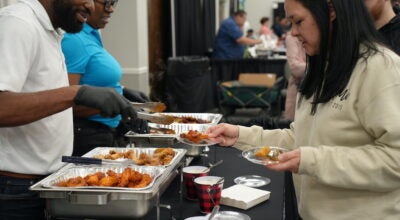Burping: a medical necessity
Published 9:05 am Tuesday, August 23, 2011
By DR. FRED SELF / Guest Columnist
As humans, we sometimes take for granted or look down on the process of burping. Socially, burping is a negative behavior. In a group of friends or business associates, the last thing you want to do is burp out loud.
However, medically speaking, burping is both a luxury and a necessity.
Not all animals can burp. Horses, for example, will develop gas in their stomach and may be unable to release it. This can be a big problem.
As the gas builds, it travels through the stomach and causes the intestines to behave like balloons. The intestines can twist when they start to float. The twisting can, in turn, cut off the blood supply to the intestines and cause death.
Cattle burp when they eructate and chew their cud. This helps relieve some of their gas buildup.
However, because they have four chambers in their stomach, gas still tends to get lodged with no way to be released. As a result ,the fourth chamber, the abomasum, can fill with air and twist.
When the side of an animal with a twisted abomasum is thumped, a “ping” can be heard with a stethoscope. The ping is the result of the reflection of sound off of the gas-filled stomach. Depending on whether it twists to the right or to the left, this condition can rapidly lead to death.
Dogs can also develop an excess of gas in their stomach. This tends to occur more in large breed dogs with deep chests. This buildup is most likely to occur after they exercise and then eat or if they eat and then exercise. The combination of eating and exercise without allowing time between can create a gas-filled stomach. When the stomach fills with gas it begins to twist. Once twisted, the blood supply to the stomach is cut off. Without immediate attention, the dog can die as a result of the twist.
Fortunately, in all these cases, surgical correction of the twist can be life saving. Horses should be watched for signs of abdominal pain and surgery considered if medical therapy is ineffective. Cows should be monitored closely before and after calving. If a ping can be heard, surgery should be considered. Owners of large breed dogs with barrel chests should consider having a gastropexy performed at the same time they are spayed or neutered to attach their stomach to the abdominal muscles to prevent twisting. Next time you have to burp, be glad you have that ability.
Dr. Fred Self is a veterinarian at Shelbiana Animal Clinic in Columbiana, along with Dr. Charles Thornburg. You can reach them at 669-7717.









